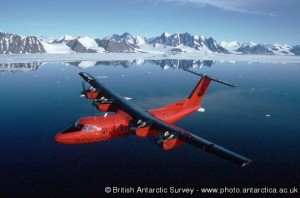Antarctic
Time Zones of Antarctica
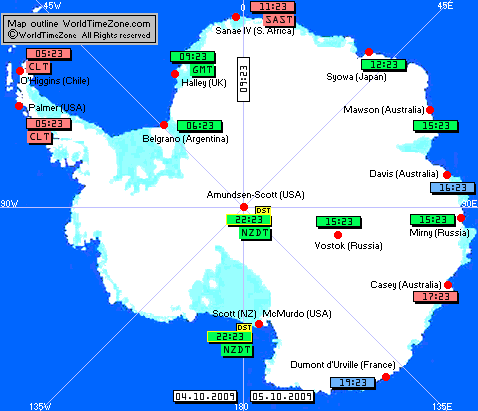
A few people have asked me what time zone Antarctica is in. Strictly speaking it is GMT without daylight savings time. However, in reality every base operates a different time and those are linked to the supply line for the base some work on DST of those respective countries.
For example at Rothera we have the same time as the Falklands, the US south pole base is on NZ day light savings time and Palmer the US station on the peninsula is on Chilean Time. Indeed on the south pole you can walk through all the global time zones in a few seconds!
Waste in Antartica and the oceans
A few friends have mentioned waste removal from Antartica and how we make sure we don’t cause environmental damage through leaving waste all around the place. At conference they talked about the ongoing project for support staff going into the field to collect old waste from past projects. All waste created on base at Rothera is removed on the ships back to the UK for disposal – 80% of all waste on base is recycled.
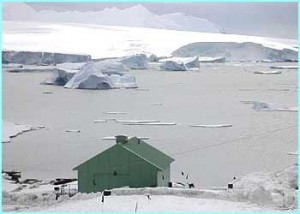
A sewage treatment plant handles all the human waste and grey water produced on site with only cleaned water being discharged to sea conforming to European Union Bathing Water Standards. Solids from the plant are disposed of through a high efficiency two stage incinerator with residual ash contained and removed from Antarctica by ship.
Last week while I was in Scotland I was diving with David Barnes who is one of the most prolific scientists at British Antarctic Survey. I did a search on the BAS waste and found an interesting Press Release about a study he did back in 2002 which describes how plastics in the ocean combined with global climate change threatens biodiversity in Antartica. The paper was published in Nature.
Recompression Chamber course
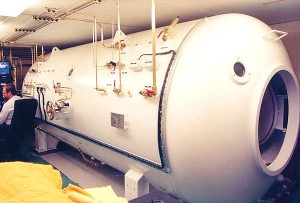
The Oban Dive Chamber is at SAMS so as we have a chamber at Rothera we need to be trained in operating the chamber should we have a dive emergency involving a case of decompression illness. Currently SAMS treats around 18 patients per year between 28 and 62% of decompression illness cases in Scotland.
The course yesterday involved a morning of lectures including:
Basics of recompression operations
Identifying decompression sickness symptoms and subsequent treatment
Basics of therapeutic recompression tables
Oxygen handling, cleanliness and breathing at high pressures (oxygen toxcity)
Basic external chamber operation
Basic internal ‘nursing’ job of the patient
Rules and regulations relating to recompression theory
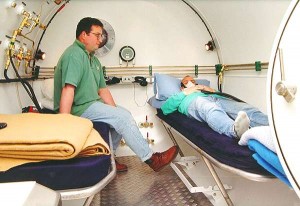
Yesterday afternoon we were treated as patients in the chamber and were taken down to 18m where we breathed heliox which makes you have a very funny high pitched voice like after inhaling helium from a ballon. So we all had some fun on that before changing to pure oxygen.
This morning we each get to do one of the jobs involved in chamber operation. Being the patient, internal ‘nurse’, supervisor and supervisors assistant. The ‘dive’ is to 14m for 45 minutes. If the chamber is being used for an emergency situation there would also be a docter on hand and it is better to have two assistant chamber operators if possible especially if the compressions are for more than a few hours e.g. the Royal Navy 64 tables are a min length of 4.75 hours and max of 6 hours 50 minutes.
This afternoon we have the local diving Dr who works at this chamber coming in for some more lectures.
More diving
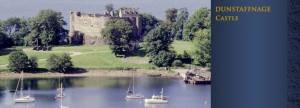 The first dive today was on the Breda again but this time we went down to the stern first and worked our way to the bow. The visibility was not as good only about 2 meters. However, the scenery was beautiful with the sun trying to push through the clouds. I took some video which I will try to post in a week or so.
The first dive today was on the Breda again but this time we went down to the stern first and worked our way to the bow. The visibility was not as good only about 2 meters. However, the scenery was beautiful with the sun trying to push through the clouds. I took some video which I will try to post in a week or so.
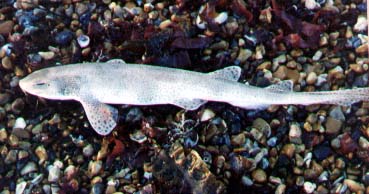
Another dive this afternoon back at the site we went to yesterday afternoon again in search of brachiolpods. Above is a picture of a dogfish – we saw the eggs on a dive yesterday. We also saw sea squirts and fan worms.
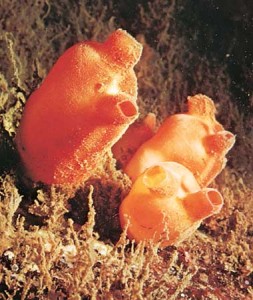
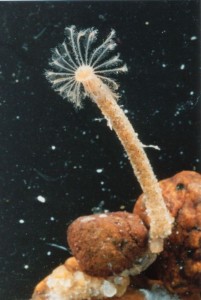
SAMS where we are diving from is situated on the same point of land as Dunstaffnage Castle. I will go have a look at it tomorrow lunch time. This evening we are out to dinner at Waterfront Restuarant in Oban which has great reviews.
Diving the Breda
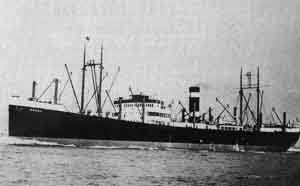
Second dive this morning with a full face mask (training for Antartica)- slowly getting use to it and to the tagline to the surface bouy. I am driving my buddy mad (I am sure) constantly getting tangled in the line and wrapping myself around them! The water is still very warm at 13C I am slightly missing the kelp forests of Monterey.
We dove on the Breda today below is a video that some other divers took of the wreck. The visibility was really great until a few other buddy pairs came down and the silt was kicked up.
The 6,941gt SS Breda is perhaps one of Scotland’s most famous and most popular wrecks. She sits upright on an even keel in a sheltered bay near Oban, and is easily located and dived. She was built in 1921 in the Netherlands and traded until she became a victim of World War II. Click for more
The third dive (second of the day) we went to look for brachiopods which 350 million years ago ruled the sea. Unfortunately we did not find any however, there were many squat lobsters 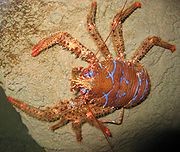 and dogfish egg. The scenery was amazing with mist rolling over the hills.
and dogfish egg. The scenery was amazing with mist rolling over the hills.
All tickety boo!
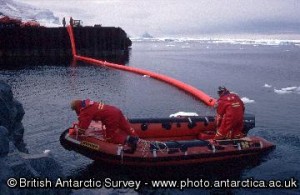
On Saturday we had our last day of first aid. Most of the day was about scenario training played out by actors (from the Casualty Union) we would come upon them as a group and have to react to the situation and figure out what was going on and how to sort out the situation/injury. Each scenario was 7 minutes long and the Dr observing would tell you what you did right or wrong. We also had exams one multiple choice, one basic life support where you gave CPR to a dummy for 2 minutes and one oral exam. The oral exam was where the Dr would give you a scenario and ask you how you would react and hopefully save the person. In the multiple choice I got 90% so 10% of my patients didn’t survive… sorry whom ever you are 🙂
On saturday night a lot of people left right after the course so there was about 40 people left at Girton some (including myself) staying on for the Oil Response Training. Oil Spill Response Limited provided the equipment that we have on base for us to get familiar with it. The course is necessary and the FCO (Foreign Commenwealth Office) requires BAS to carry out the training in order for BAS’s permit to be South to continue. There were a few more powerpoint lectures all very interesting and really pretty awe inspiring when you think of the logistics necessary to get fuel down there, how much fuel is used by the Survey each year etc. I found it amazing that Halley’s fuel is 30 meters underground in a system of flubbers (flexible tanks).
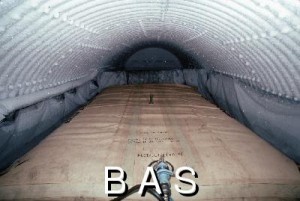
We learnt how to blow up the oil booms to contain fuel or protect an area from oil, install them into place and anchoring techniques. Also how to use the skimmers which remove the oil from the surface and how to build a temporary tank to store oil which we have collected. We also did a desktop exercise where we had charts and plans of the base and were given a scenario of fuel being spilt and had to come up with a plan to contain and clean it up. It was a fun course. Almost everyone on the course went up to Derbyshire for a week of camping however, the base commander didn’t send me up as he said I would learn it all when I got to base. So I am at home in London playing with my nieces and nephew before heading up to Scotland for a week of training on Sunday.
More First Aid and Heading South
Today’s training was long but great fun 8:30 to 7:15pm meant everyone was wiped out by the end but had learnt a lot. A veritable cocktail of First Aid topics. The plaster casts were great fun as each person had to put a back cast on either a leg or arm. A back cast is a temporary cast which allows the limb to still swell but immobilises it.
The Splinting was another outdoor session where we got to play with the many different splints and stretchers that BAS has and also a little innovation using some skis and ice axes.
The injections we didn’t do on each other as it might have been too painful so instead some oranges were injected with saline solution. Our last station was where we had a puff of entonox which actually I didn’t seem to feel any effect from – it is used on base as an anaesthesia.
I have also been given some travel information. I will be flying commercial plane (LanChile) from the UK to Santiago to Punta Arenas Chile where I will spend a night. Then from Punta Arenas onto the Falklands where I will spend a night in Stanley and wait for a weather window to head to Rothera on the BAS Dash 7. Apparently all your kit is under a cargo net and then they have seats in the back it will take around 4-5 hours. I leave the UK on the 12th November but that is subject to change I have been told to be ready to go a few weeks earlier or indeed later.
—–
Lectures of 20 minutes each today were on
Breathing Difficulties
Shock and Bleeding
Consciousness and lack of it
Spinal Injuries
Injuries to Limbs
Thermal Problems
Again we had skills sessions ranging from 25 minutes to 50 minutes each on
Basic Life Support
Airway Maintenance
Minor Injuries, wounds, bandages and pressure dressings
AED Defibrillator
Plaster casts
Splinting, casualty handling, cervical collars, stretchers
Entonox and Analgesia
Giving Intramuscular Injections
Major Incident Response
Stabilisation and Transport
A blur
Yesterday we finished the briefing conference and moved today onto three days of First Aid training. The last two days have blurred.
The best talk of yesterday was by an Artist who went to Antarctica it was hilarious though many people did comment there wasn’t much art actually involved. Everyone was laughing and he did get a loud round of applause and it did help to break up the massive amount of information overload that has occurred.
The morning was all about cultural discussion which was a new one for me as being self employed I have not been involved with a personell department which creates group exercises to be involved in. To be fair they were interesting and did make everyone think about how things have to be dealt with differently on a base at 67 degrees south. There were discussions about alcohol and how this effects people, cliques and the problems that occur as a result of them, dealing with a know it all in your work space etc.
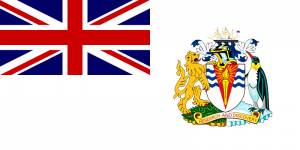
After yet another tea break!! which I am going to have to learn to understand we had a very educational talk by a lady from the Foreign and Commenwealth office on the role of BAS in the politics of the Antarctic Treaty. Basically as we will be residing in the British Antarctic Territory we will be paying a reasonable BAT tax of 7% the question arises as to what they do with our taxes! One project funded by this revenue is an educational website on the continent itself at http://www.discoveringantarctica.org.uk/. There are also postage stamps for the territory so if you are lucky some of you will get a postcard with the stamp on!
We had a talk by the press office about what media projects will happen this year including a Sky News program and a BBC program. Also a talk about H1N1 and how BAS are dealing with the flu issue. I spent the afternoon at the computer lab learning how to use the BAS inventory program which is very necessary so that the correct supplies get on the ships providing relief to the bases down south.
Didn’t swim this morning as I wasn’t feeling great despite not drinking I was partying and scottish dancing till midnight! In typical British fashion there was a BBQ last night in the freezing cold and there was strawberries and cream (tasty). The BBQ was tasty with a full pig on the spit and also steak and chicken to choose from.
We had a great day of first aid training which is the most in depth I have had so far.
We had four skill workstations each of 40 minutes long in
Measuring Vital Signs
Examining the chest and abdomen
The Recovery position
Hypothermia and other cold injuries
And lectures in the following:
Recognising Serious Problems
Basic Life Support
Love, Life and despair in Antarctica
Airway Management
The Medical Research occurring down south this season
First Aid in Diving
I will be helping out with some diving at Rothera as well so will be on a course next week in Oban. I was excited to see that Kirk who is at Rothera base has just put up a little movie about the diving that the current dive officer and scientists are doing down there.
It is 6:30pm and time to go for another I am sure delicious dinner which I will need to burn off tomorrow morning.
North Facing
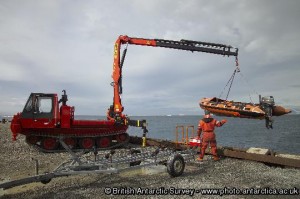
There were a myriad of talks today at Conference – every now and again there is a little bit of information that sticks in your brain. For everyone that is different depending on their interest. I hadn’t really thought I know I should have known this but the solar panels on the new building at Rothera are North Facing because we are in the Southern Hemisphere. When you grow up in the Northern Hemisphere you are always thinking about how it is great to have a south facing garden – not what you want in the south at all unless you want frost bite. A glaciologist got up and explained his theory for the break up of the Larson Ice Shelf and another scientist talked about a project which mapped a mountain range under the ice shelf that is the size of the Alps.
I have been really impressed by BAS and how it involves everyone from Chefs, trades, PHD students, press in all aspects of the operations. We have learnt about the engineering and technology behind everything that happens within the organization, had some personnel exercises, listened to some more science lectures, learnt about health and safety and also about how BAS works with other countries to get projects done.
So basically another long day with some great information being disseminated and more getting to know the people that I will be working alongside down south.
The food continues to be plentiful I can see why people put on weight down there! So I went for a swim this morning with the Dr and Base Commander which we will do again in the morning. Looking forward to all the recreation activities down south.
I will leave you with this link that shows my ‘office’ down south. The picture at the top of this blog is of the boats being put into the water off the wharf – I will be going on a course to learn how to run the cranes and tractors as this is part of my job down there.
Uphill Paper round
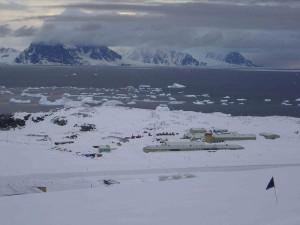
The picture above is of the base I will be at in Antarctica from November 2009 through April 2010.
Dickie (winter base commander Rothera) commented on someone ‘he had an uphill paper round’ – A very funny expression for commenting that someone looks older than their age.
It was a 12 hour day of sitting inside listening to one interesting talk after another. At the end of the night I ended up at the bar drinking orange juice and lemonade (really pushing the boat out!) with the people I will be going south with to Rothera and we got onto age. It was obvious the diving officer was the age of my little brother! So I am now feeling old!! The Dr, winter base commander and the dive officer are all younger than me with only the base commander being 3 years older. I am certainly feeling like I have not done much in my life seeing as everyone but the Dr is going back for their second, third and maybe fourth time! I am getting excited that I have a great group of people to work with.
If you want to check out some pictures of the boats I will be looking after click here.
The day consisted of talks on the history and structure of BAS, the science that will happen down their this season, all about the base how it runs, about the other bases and also environmental issues, personnel policies, photography, internet and last but not least recreation down there. Unlike many other countries BAS encourages recreation down south and getting out into Antarctica within certain limits. I think the thing I like the most about the organization so far is how everyone ‘chips in’ to get the job done. The guy who interviewed me last year and who runs the logistics for South Georgia base drove the minibus the take us to kitting out and then turned around to give a speech on the base down there etc.
Anyways I am off to bed for a few hours before meeting for an early morning swim with the base docter and the base commander. Night.


